When comparing solar and traditional water heaters, you'll find five essential differences. Solar heaters offer superior energy efficiency, potentially covering 80% of your hot water needs for free. While they have higher upfront costs, solar systems last longer and require less maintenance. Traditional heaters are cheaper initially but consume more energy and need frequent upkeep. Environmental impact is a key factor, with solar options greatly reducing your carbon footprint. Climate plays a role too; solar performs best in sunny regions, while traditional heaters work consistently everywhere. Understanding these comparisons will help you make an informed decision for your home.
Energy Efficiency and Savings
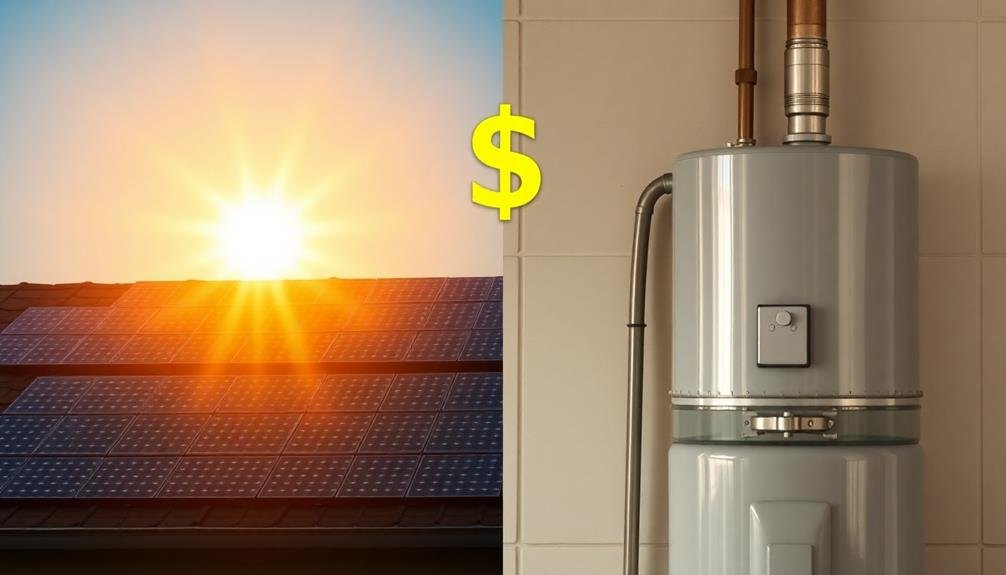
When it comes to energy efficiency and savings, solar water heaters have a clear advantage over traditional models. They harness the sun's free energy to heat your water, greatly reducing your reliance on electricity or gas.
You'll see a substantial decrease in your monthly utility bills, as solar heaters can provide up to 80% of your hot water needs for free.
Traditional water heaters constantly consume energy to maintain water temperature, even when you're not using hot water. In contrast, solar heaters only use minimal backup energy during cloudy days or high-demand periods.
This efficiency translates to long-term savings, despite the higher initial investment for solar systems.
You'll also benefit from government incentives and tax credits when you install a solar water heater, further offsetting the upfront costs.
Over time, your solar heater will pay for itself through energy savings. Traditional heaters, while cheaper to install, continue to cost you money throughout their lifespan due to ongoing energy consumption.
Initial Cost and Installation
The initial cost and installation of solar water heaters can be a considerable hurdle for many homeowners. You'll find that solar water heaters are generally more expensive upfront than traditional water heaters. On average, you can expect to pay between $2,000 and $5,000 for a solar water heating system, while traditional water heaters typically cost $500 to $1,500.
Installation of solar water heaters is also more complex and time-consuming. You'll need to take into account factors like roof orientation, available space, and local building codes. Professional installation is often required, which adds to the overall cost. In contrast, traditional water heaters are simpler to install and can often be a DIY project if you're handy.
However, it's essential to mention that the higher initial cost of solar water heaters can be offset by long-term energy savings and potential tax incentives or rebates. You may qualify for federal, state, or local incentives that can notably reduce your out-of-pocket expenses.
When examining the initial cost and installation, factor in these potential savings and the long-term benefits of a solar water heating system.
Maintenance and Longevity
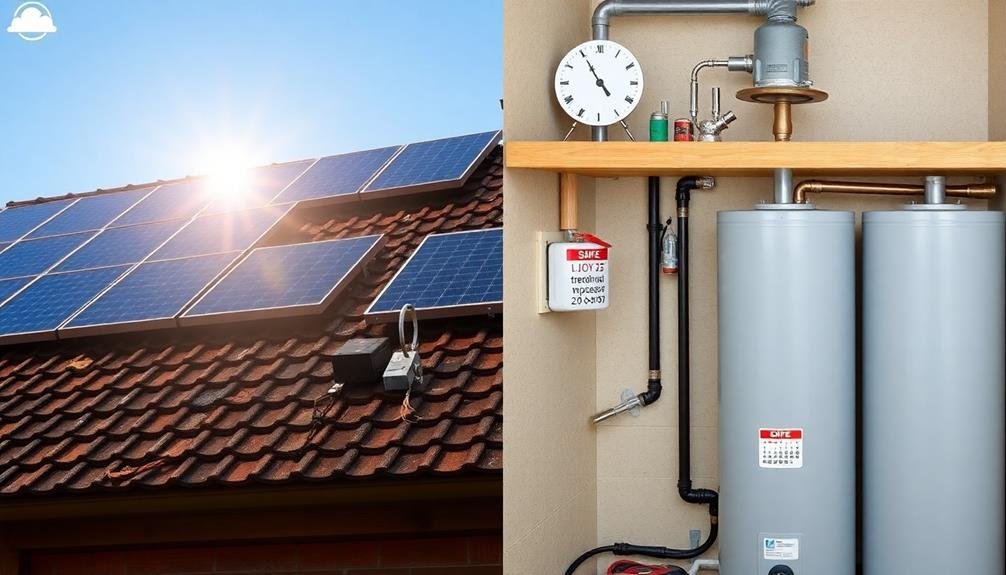
Over the long haul, maintenance and longevity play essential roles in determining the true value of your water heating system. Traditional water heaters typically last 8-12 years, while solar water heaters can function for 20 years or more. This extended lifespan can greatly offset the higher initial costs of solar systems.
Maintenance requirements differ between the two types. Traditional water heaters need regular flushing to remove sediment buildup and occasional anode rod replacements. You'll also need to check for leaks and corrosion periodically.
Solar water heaters, on the other hand, require less frequent maintenance. You'll need to clean the collectors annually and inspect the system for leaks or damage. However, the solar pump and storage tank may need replacement after 10-15 years.
It's worth noting that traditional water heaters are more prone to sudden failures, which can lead to flooding and emergency replacements. Solar systems are less likely to fail catastrophically, giving you more time to plan for repairs or replacements.
When considering long-term costs and convenience, solar water heaters often come out ahead due to their durability and lower maintenance needs.
Environmental Impact
Beyond maintenance and longevity considerations, the environmental impact of your water heating system is a key factor to weigh. Solar water heaters considerably reduce your carbon footprint compared to traditional systems. They harness renewable energy from the sun, eliminating greenhouse gas emissions during operation. In contrast, conventional water heaters rely on fossil fuels or electricity, contributing to air pollution and climate change.
When you choose a solar water heater, you're actively participating in environmental conservation. Here's a comparison of the environmental impact:
| Aspect | Solar Water Heaters | Traditional Water Heaters |
|---|---|---|
| Energy Source | Renewable (Sun) | Non-renewable (Fossil Fuels) |
| CO2 Emissions | Minimal | Considerable |
| Resource Depletion | Low | High |
| Ecological Footprint | Small | Large |
Performance in Different Climates
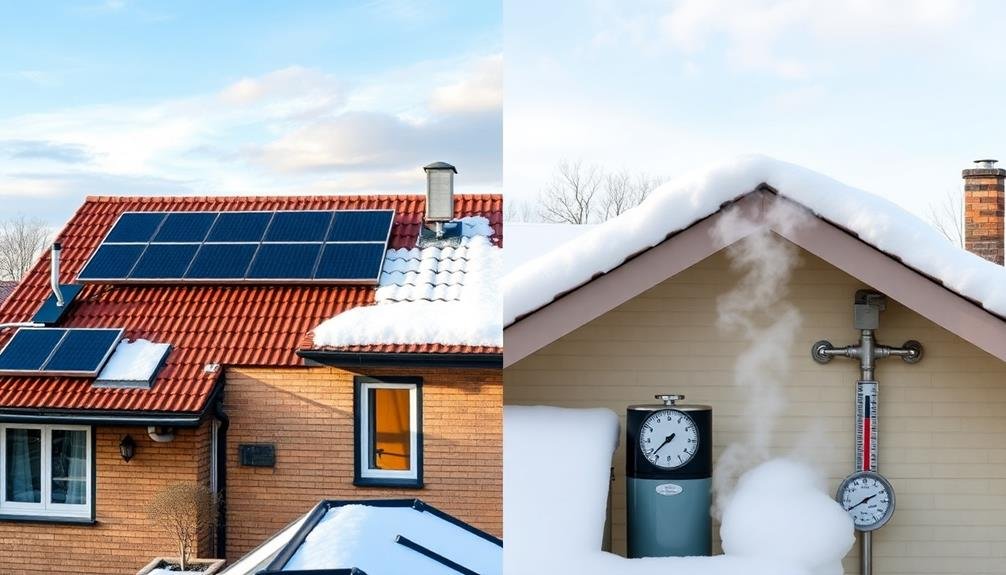
Climate's influence on solar water heater performance is an essential factor when choosing between solar and traditional systems. In sunny, warm regions, solar water heaters excel, providing efficient and cost-effective heating throughout the year.
You'll find they're particularly effective in places like Arizona, California, and Florida, where abundant sunlight allows for consistent performance.
However, in colder or cloudier climates, solar water heaters may struggle to maintain efficiency. You'll need to evaluate backup heating options or larger solar collectors to compensate for reduced sunlight exposure.
Traditional water heaters, on the other hand, perform consistently regardless of climate, making them more reliable in areas with long, harsh winters or frequent overcast conditions.
Altitude and air quality also impact solar heater performance. At higher elevations, you'll benefit from increased solar radiation, potentially boosting efficiency.
However, in areas with high air pollution, solar panel effectiveness may be reduced. Traditional water heaters aren't affected by these factors, maintaining steady performance across various environmental conditions.
Ultimately, your location's climate will play an essential role in determining which system is best suited for your needs.
Frequently Asked Questions
Can Solar Water Heaters Be Integrated With Existing Traditional Water Heating Systems?
Yes, you can integrate solar water heaters with your existing traditional system. They're often installed as a pre-heating solution, working alongside your conventional heater. This setup allows you to benefit from solar energy while maintaining backup heating capabilities.
How Noticeable Is the Difference in Water Temperature Between Solar and Traditional Heaters?
You'll notice little difference in water temperature between solar and traditional heaters. Both can provide hot water at similar temperatures. However, solar heaters may have slight fluctuations depending on weather conditions and sunlight availability.
Are There Any Government Incentives or Rebates for Installing Solar Water Heaters?
Yes, you'll often find government incentives for solar water heaters. Many countries offer tax credits, rebates, or grants to encourage installation. Check with your local energy office or utility company to see what's available in your area.
Do Solar Water Heaters Work During Power Outages or at Night?
Yes, solar water heaters can work during power outages and at night. They store hot water in insulated tanks, so you'll have access to it even when there's no sunlight or electricity. However, backup systems are often recommended.
How Much Roof Space Is Typically Required for a Solar Water Heater?
You'll typically need about 40-80 square feet of roof space for a solar water heater. This varies based on your household size and hot water needs. It's important to guarantee you've got enough sunny, unobstructed area available.
In Summary
You've seen how solar and traditional water heaters stack up in key areas. While solar options shine in energy efficiency and environmental impact, they come with higher upfront costs. Traditional heaters are more affordable initially but less efficient long-term. Your choice depends on your budget, climate, and eco-priorities. Consider your specific needs and local conditions carefully. Whichever you choose, you're now equipped to make an informed decision for your home's water heating future.

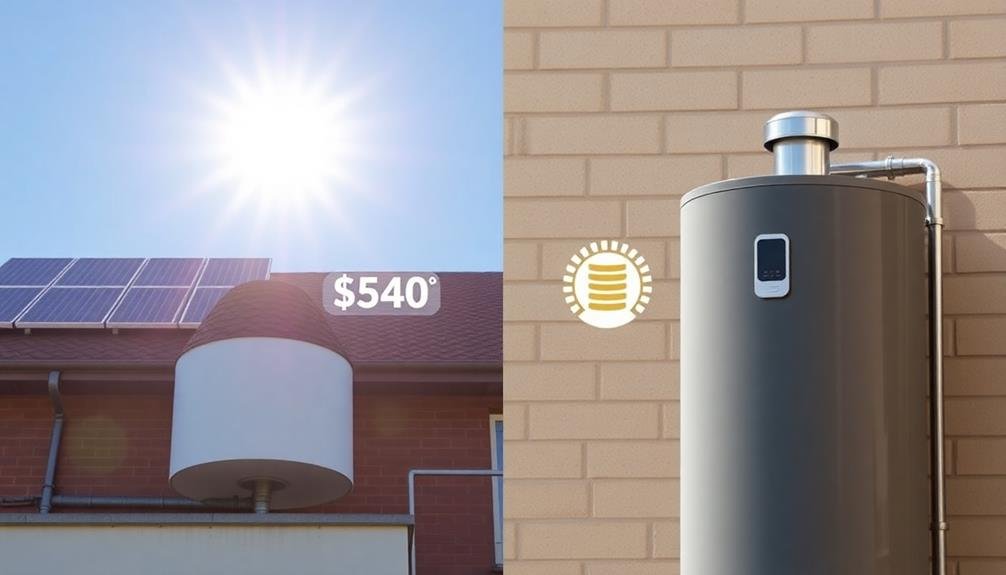
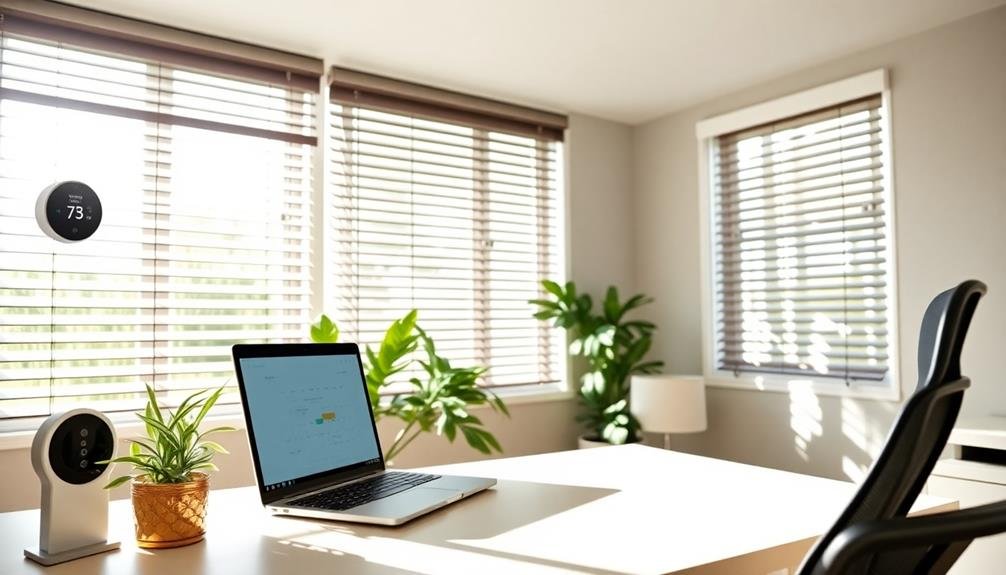
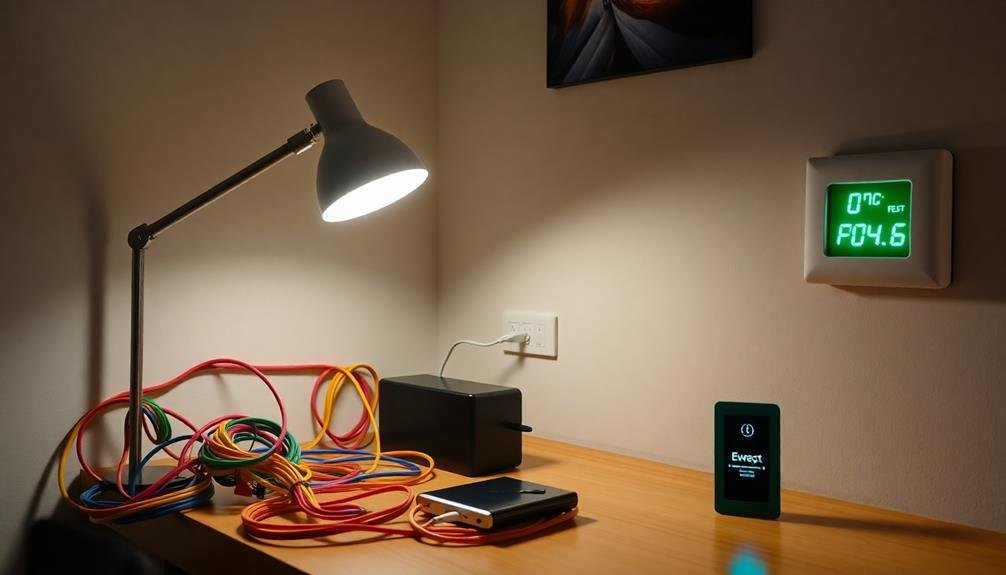
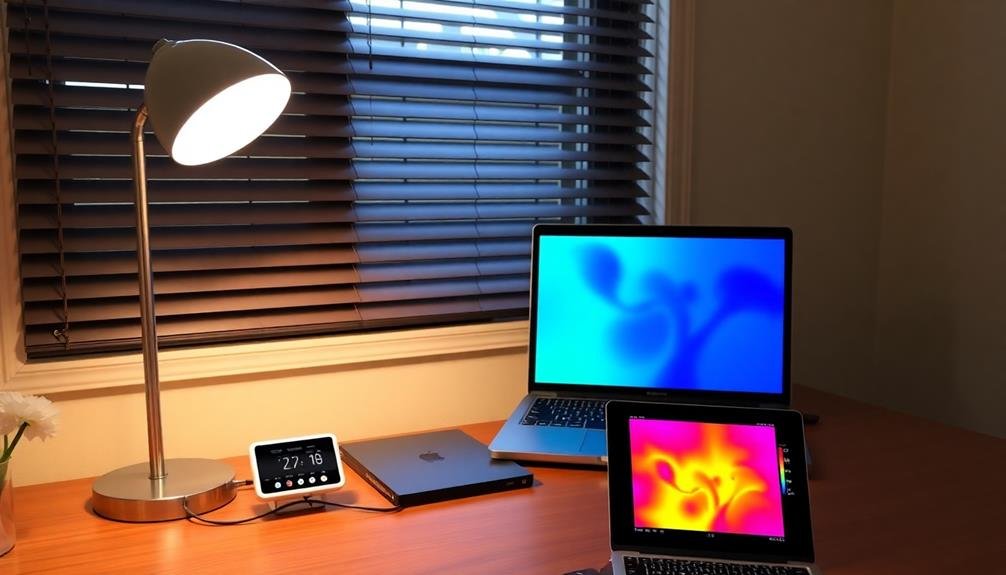
Leave a Reply